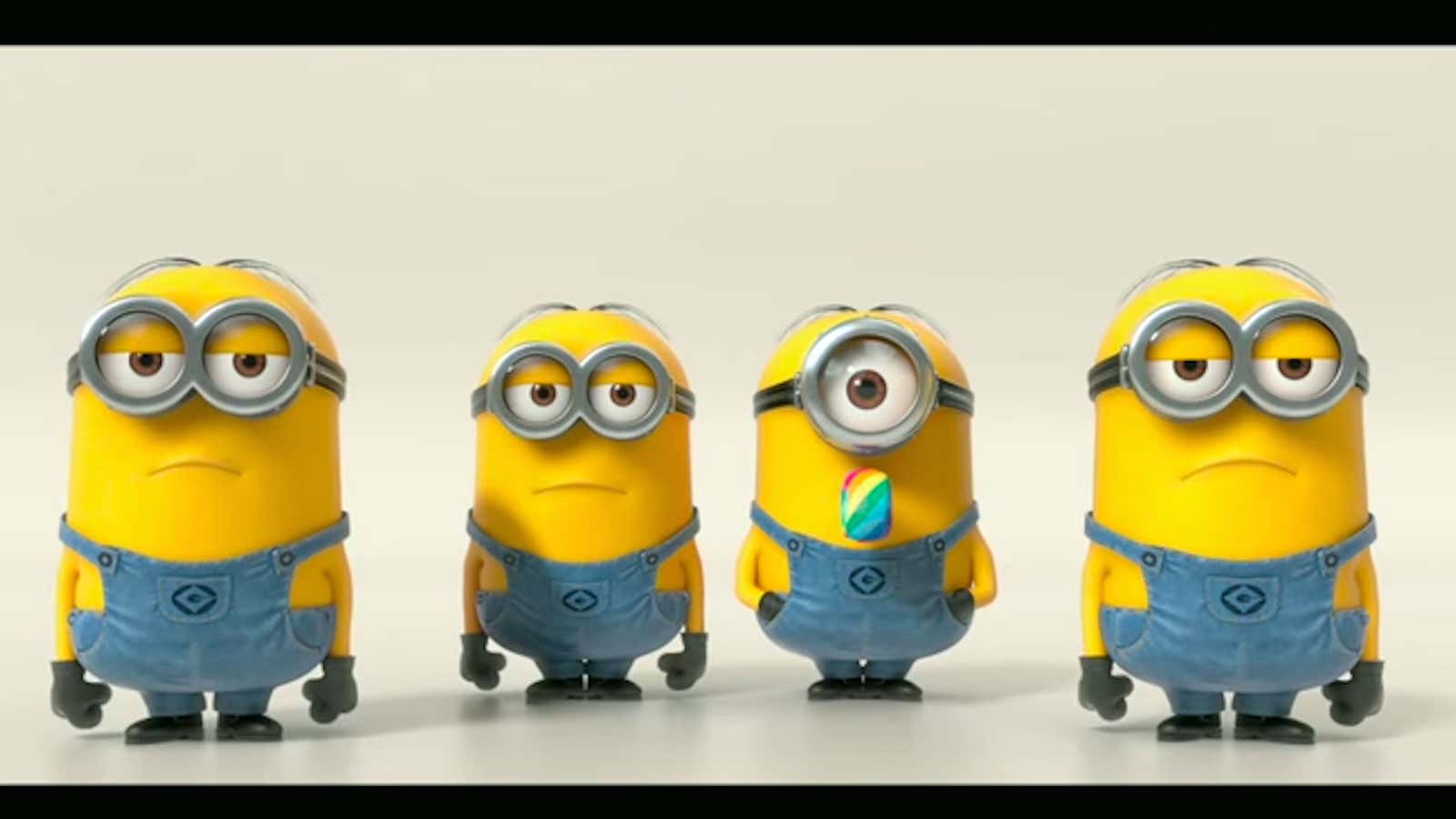Minions, the squishy, yellow, gibberish-speaking animated characters starring in Universal Studios’ latest advertising darling, Minions Movie, aren’t as gender-neutral as they might seem.
This month, when asked about the reasoning behind the movie’s all-male main characters, creator of the third installment of the popular Despicable Me franchise Pierre Coffin responded: ”Seeing how dumb and stupid they often are, I just couldn’t imagine Minions being girls,” he told The Wrap.
Putting aside the offhand nature of those comments (which unsurprisingly infuriated feminist critics), the movie does not pass the Bechdel test, a much-cited informal benchmark created by comic strip writer Alison Bechdel for whether a film represents female characters fairly. To pass the test, a movie must feature at least two named female characters who speak to each other about a topic other than another man. Only 55% of movies managed to pass the test in 2014, according to data publishing site Silk (h/t the Guardian).
The sweeping popularity of Minions makes its take on gender all the more distressing. Minions are now featured as stickers on half a million bananas, on the wrappers of identical-looking Twinkies, and as the latest toy in McDonald’s Happy Meal, itself the subject of controversy for its potential potty mouth.
